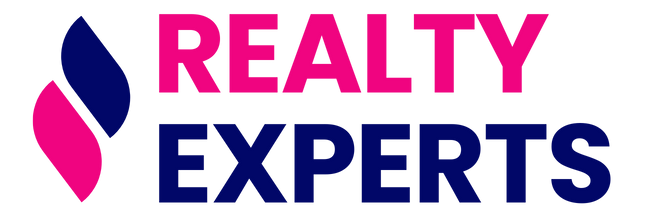Essential Factors to Consider When Choosing Your Career Path

Photo by Joshua Harris on Unsplash
Introduction
Choosing a career is one of the most significant decisions you will make, impacting your long-term satisfaction, financial stability, and personal growth. The process involves careful consideration of various factors to align your skills, interests, and values with market opportunities. This guide provides actionable advice on the essential elements to consider, real-world examples, and practical steps for accessing resources and support throughout your career decision-making journey.
1. Financial Considerations
Financial stability is often at the forefront of career planning. Assessing potential salary , benefits, and job stability is crucial. Begin by researching average salaries for roles in your field using verified sites like the U.S. Bureau of Labor Statistics Occupational Employment and Wage Statistics . Consider not only starting salaries but also long-term earning potential, benefits (such as health insurance, retirement plans), and possibilities for advancement.
For example, someone choosing between teaching and software engineering should compare not just base salaries but also future growth, bonuses, and industry demand. Recognize that while high-paying jobs offer financial security, they may come with higher stress or longer hours. Balancing financial goals and personal happiness is key. To access reliable salary data, search for your desired career on the Bureau of Labor Statistics or talk to professionals in your network for firsthand insights. [1] [2]
2. Job Satisfaction and Personal Fulfillment
Job satisfaction goes beyond salary. Consider whether the career aligns with your passion , values, and sense of purpose. Ask yourself what motivates you and brings fulfillment. For instance, healthcare professionals may find satisfaction in helping others, while artists thrive on creativity.
Reflect on past experiences and interests. Journaling about what excites you or seeking career counseling can help clarify your values. If your passion does not align perfectly with high-paying fields, investigate hybrid careers or side projects to maintain balance. Explore mentorship and networking opportunities to connect with like-minded professionals. [1]

Photo by Kamil LeÅ› on Unsplash
3. Skills Development and Professional Growth
Evaluate the skills required for your chosen career and identify gaps in your current skillset. Many industries offer pathways for continuous learning and advancement. For example, tech fields may require ongoing certification, while healthcare roles demand regular training. Research professional development resources, such as industry certifications, online courses, and workshops.
Mentorship programs and networking events can provide insight and support. Check professional associations and trade groups for opportunities. If you’re unsure about where to start, search for your field’s main association and review their education and training offerings. [1]
4. Market Demand and Job Security
Investigate the current and projected market demand for your chosen profession. High-growth industries tend to offer better job security and advancement opportunities. Use verified sources such as the Bureau of Labor Statistics for job outlook data and employment trends. For example, careers in renewable energy, healthcare, and technology are expected to grow rapidly in the coming decade.
Job security varies based on economic conditions, industry stability, and geographic location. Consider remote work opportunities and flexibility if relocation is an option. If you face constraints, such as limited local opportunities, explore virtual roles or industries with broader reach. [2] [4]
5. Work-Life Balance and Flexibility
Work-life balance is essential for overall well-being. Assess work hours, leave policies, flexibility, and company culture. Some careers offer standard hours and predictable schedules, while others require frequent overtime or travel. Consider your lifestyle preferences and family commitments when evaluating options.
If flexibility is important, look for roles with remote work options or companies known for supportive cultures. Many organizations publicly share their work-life balance initiatives, which can be found on their official websites or employer review platforms. [1] [4]
6. Professional Prestige and Social Impact
Prestige and social impact can influence career satisfaction. Some individuals value recognition and societal contribution. For example, doctors, lawyers, and engineers often hold respected positions. Consider whether prestige or making a difference matters to you, and research the reputation of various professions. If prestige is important, look for roles in regulated professions or those requiring advanced degrees. For social impact, explore nonprofits, education, or healthcare. [4]
7. Job Accessibility and Location
Job accessibility involves the availability of opportunities in your geographic area and your ability to meet job requirements. If a profession is scarce locally, consider remote work, relocation, or fields with broader national/global demand. Use job boards, professional networks, and government employment agencies to research openings and trends.
If you face barriers such as visa restrictions or lack of credentials, investigate bridging programs or alternative careers with similar skillsets. [2]
8. Personal Interests and Personality Fit
Your interests and personality traits should align with your career for long-term success. Self-assessment tools, such as the Holland Code (RIASEC) or Myers-Briggs Type Indicator, can help you identify roles that match your strengths. Many universities and career counseling centers offer these assessments.
For example, extroverts may excel in sales or customer service, while introverts may prefer research or technical roles. Consider volunteering, internships, or informational interviews to test your fit before committing. [1] [3]
9. Family and Social Influences
Family expectations and social networks can affect career choices. While some studies show family influence is significant, others suggest personal interest is more important. Discuss your plans with trusted family members and mentors, but prioritize your values and goals. Use career counseling services for impartial advice if you feel conflicted. [3]
Practical Steps to Make an Informed Career Decision
To implement these considerations effectively:
- Self-assessment: Use personality and interest inventories available through career counseling centers or online platforms. Record your results and reflect on your strengths.
- Market research: Search for your desired career using trusted sources such as the Bureau of Labor Statistics and reputable job boards. Compare salary, growth, and job security data.
- Networking: Connect with professionals via LinkedIn, industry associations, or local events. Request informational interviews to learn about real-world experiences.
- Education and training: Identify the qualifications and certifications required. Research accredited programs through official educational institutions, not generic sites.
- Trial experience: Seek internships, volunteer positions, or part-time roles to gain firsthand experience. Many organizations offer structured internship programs for students and career changers.
- Consultation: Engage with career counselors at your school, university, or local employment agency. They can provide personalized advice and resources.
If you’re unsure where to start, search for “career counseling services” or “professional associations” in your field. Avoid unverified websites; instead, rely on official portals and trusted organizations.
Alternative Approaches and Overcoming Challenges
Career decisions can be complex, and challenges may arise, such as economic uncertainty, changing job markets, or personal doubts. If your preferred path isn’t immediately accessible, consider alternative routes such as additional education, lateral moves, or starting in related fields. Remain adaptable and open to new opportunities.
If you encounter obstacles, seek support from mentors, professional associations, or career counseling centers. Many universities and local agencies provide free or low-cost career services.
Summary and Key Takeaways
Choosing a career requires balancing financial goals, personal fulfillment, skill development, market demand, and lifestyle preferences. By conducting thorough research, engaging with professionals, and leveraging official resources, you can make informed decisions tailored to your strengths and ambitions. Remember, career paths are rarely linear-stay open to change and growth.
References
- Global Career Counsellor (2023). 10 Key Factors When Choosing Your Career Path.
- Indeed (2024). Factors to Consider When Making Your Choice of Career.
- Taylor & Francis Online (2024). Decoding Destinations: Unraveling the Factors That Shape Career Choices.
- Sunway University (2023). Important Career Influences: What Shapes Your Career Choices?
MORE FROM realtyexperts.ai













